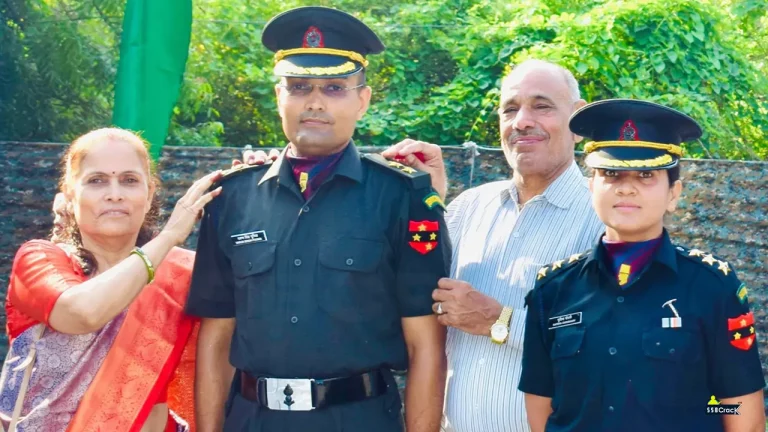Instilling self-discipline in children is a crucial yet challenging task that many parents grapple with. However, the time-tested methods employed by the esteemed Indian Army offer a promising blueprint for fostering this vital life skill in young minds. By drawing inspiration from the 7 Simple Army Techniques to Teach Kids Discipline, parents can cultivate self-discipline, responsibility, and a strong moral compass in their children, setting them up for long-term success.
1. Establish a Structured Routine
Just as the Indian Army emphasizes the importance of a regimented schedule, parents can implement a similar approach at home. Collaborate with your child to create a detailed daily routine, covering everything from wake-up times and meal schedules to homework, chores, and leisure activities. Encourage your child to adhere to this routine religiously, instilling the value of punctuality and organization. Start with simple tasks, such as making the bed every morning, and gradually expand the routine as your child develops self-discipline.
2. Explain the Rationale Behind Rules
In the Indian Army, soldiers understand the reasoning behind the rules and regulations they must follow. Emulate this approach with your child by clearly explaining the purpose and consequences of the rules you establish. Avoid lengthy, preachy explanations; instead, provide concise, age-appropriate justifications that help your child grasp the importance of these guidelines. This approach fosters a sense of responsibility and empowers your child to make informed choices.
3. Implement Logical Consequences
When your child fails to adhere to the established rules or meet their responsibilities, resist the temptation to impose arbitrary punishments. Instead, allow them to experience the natural consequences of their actions, just as the Indian Army holds its personnel accountable for their decisions. For example, if your child neglects their homework, they should face the consequence of not being able to participate in a favorite activity, rather than being punished with an unrelated consequence.
4. Provide Gradual, Consistent Practice
Developing self-discipline is a gradual process, much like the rigorous training regimen of the Indian Army. Avoid expecting your child to instantly adopt a military-level of discipline. Instead, introduce new habits and responsibilities in a step-by-step manner, providing reminders and support as needed. Gradually reduce the level of assistance as your child demonstrates increased self-reliance, ultimately fostering a sense of ownership over their own disciplinary practices.
5. Recognize and Reward Positive Behaviors
The Indian Army’s emphasis on recognizing and rewarding exemplary performance can be effectively applied in the home setting. Whenever your child displays self-discipline, responsibility, or other desirable behaviors, offer genuine praise and acknowledgment. This positive reinforcement encourages them to continue making good choices and reinforces the value of self-discipline.
6. Empower Your Child to Problem-Solve
When faced with challenges or setbacks, the Indian Army’s problem-solving approach can serve as a model for parents. Rather than immediately providing solutions, guide your child through the process of identifying the issue, brainstorming potential solutions, and implementing the most appropriate course of action. This empowers them to develop critical thinking skills and the ability to navigate obstacles independently.
7. Lead by Example
As in the Indian Army, where officers set the standard for their troops, parents must embody the self-discipline they wish to instill in their children. Demonstrate your own commitment to a structured routine, adherence to rules, and responsible decision-making. By modeling the behaviors you want to see in your child, you create a powerful example for them to follow.
Conclusion
By harnessing the time-tested tactics of the Indian Army, parents can cultivate self-discipline, responsibility, and a strong moral compass in their children. From establishing structured routines to leading by example, these strategies provide a comprehensive framework for nurturing disciplined, resilient, and empowered young individuals. Embrace the principles of the Indian military and watch your child blossom into a self-assured, focused, and successful person.
FAQs
1. How does the military teach self-discipline?
Military personnel establish clear objectives and follow consistent daily routines, which help them stay focused and on track. They are accountable not only to their superiors but also to their fellow soldiers, and this sense of responsibility fosters strong discipline.
2. What is an example of self-discipline in the army?
Here are a few examples of personal responsibilities within the profession that demand self-discipline: maintaining physical fitness, staying medically prepared, and pursuing professional military education. Among these, physical fitness is often the first aspect that comes to mind when considering self-discipline.
3. How is discipline important for Army?
Without discipline, a military force is merely a group of volunteers who cannot come together for joint defense or accomplish tasks in battle. Discipline serves as the adhesive that unites soldiers under the direction of their commanding officers.
4. How to be disciplined like the Indian Army?
Stay alert and maintain a professional attitude at all times. Wearing the cap outdoors is mandatory as it is part of the uniform and shows respect for the Indian Army. When saluting, keep your left arm straight and by your side.











